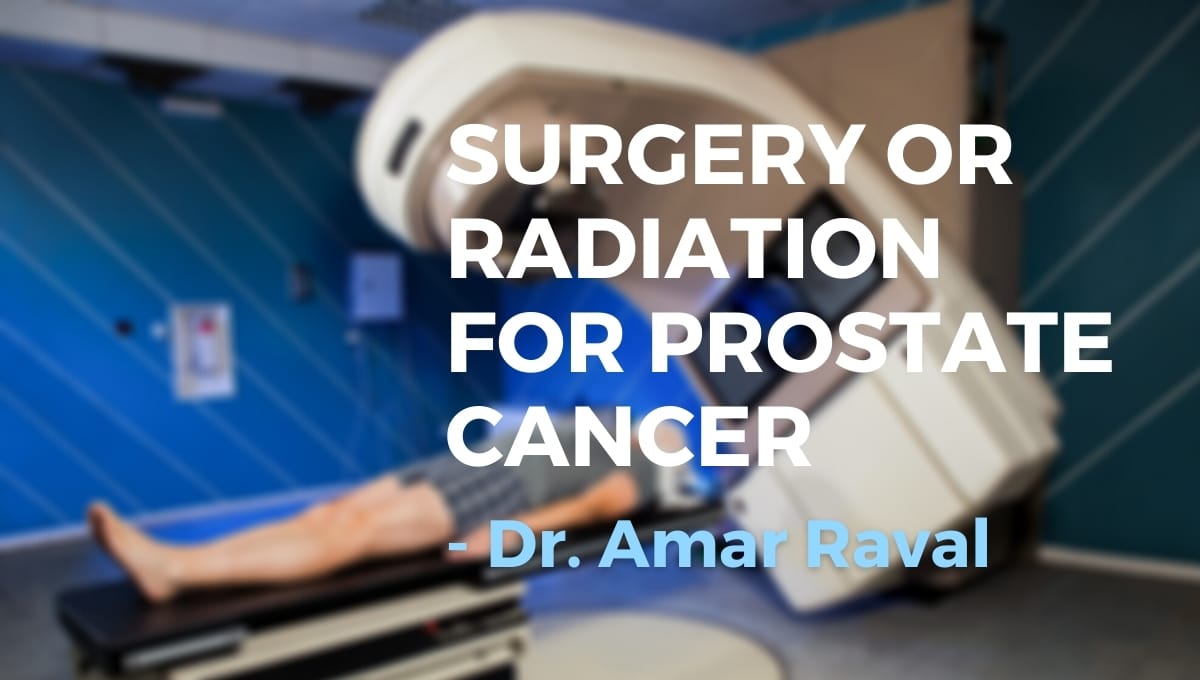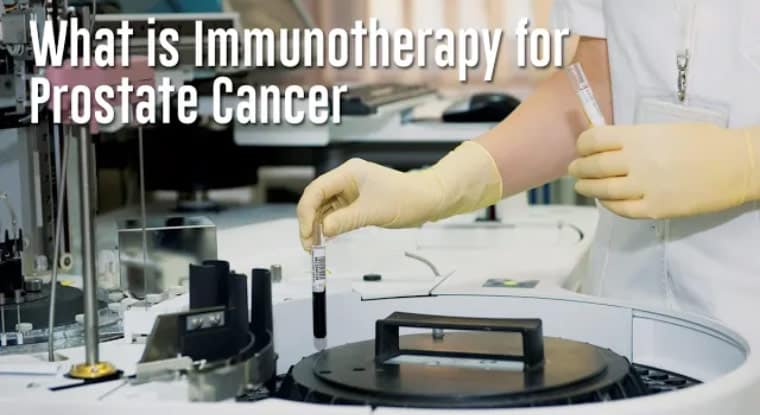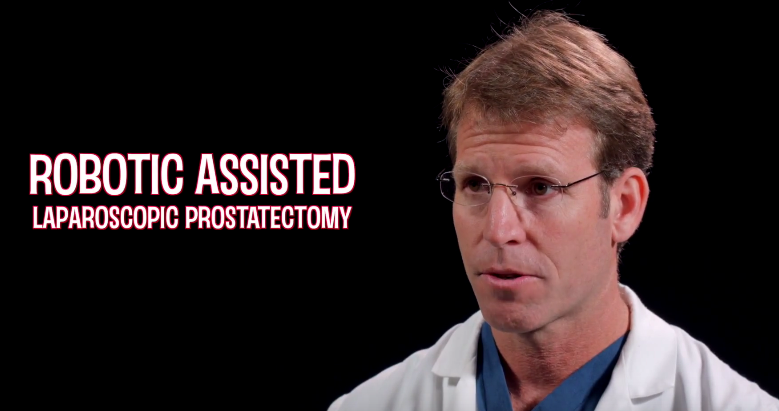Read Testimonials of Prostate Cancer Patients from Advanced Prostate Cancer Institute. Explore Real Stories of Hope, Healing & Care.
Continue readingDon Dubois, PhD: Leading Radiation Physicist at Oxford, Florida’s Prostate Cancer Institute
Meet Don Dubois, PHD – Leading Radiation Physicist at Oxford, Florida’s Prostate Cancer Institute. Explore Innovative Medical Contributions!
Continue readingThe Precision and Accuracy of Radiation Therapy
Exploring the Precision and Accuracy of Radiation Therapy. Navigating Advanced Techniques & Effective Treatment at Advanced Urology Institute.
Continue readingNew Technologies for Treating Prostate Cancer
Revolutionizing Urology. Explore the New Technologies for Treating Prostate Cancer. Stay Informed at Advanced Urology Institute.
Continue readingOvercoming Fear of Cancer Diagnosis and Treatment
Overcoming fear of cancer diagnosis and treatment can be challenging. You can do it with the help of experts at Advanced Urology Institute.
Continue readingWhat Do Your PSA Test Levels Really Mean?
Understand and be aware of what your PSA Test Levels Really Mean with Advanced Urology Institute. Don’t miss this eye-opening information.
Continue readingRadiation Therapy for Prostate Cancer: How Far We’ve Come
The world of prostate cancer treatment has come quite a long way in recent years. Patient comfort has drastically improved in the past decade.
Continue readingIMRT/IGRT Treatment for Prostate Cancer in Oxford, FL: A Groundbreaking Approach
IMRT and IGRT treatments are methods recognized by leading radiation therapists to treat prostate cancer. Learn more at AUI’s Oxford office.
Continue readingWhat to Expect When Having Radiation Therapy
Individualized Treatment for Prostate Cancer – Dr. Rishi Modh
“Prostate cancer has to be an individualized conversation.” says Dr. Rishi Modh of Advanced Urology Institute in St Petersburg, FL.
Continue readingDr. Amar Raval’s Recommendations: Surgery or Radiation for Prostate Cancer?
Prostate Cancer Treatment: How to Choose What’s Best for You
Prostate cancer is one of the most common types of cancer that affects men. The prostate is a small gland, similar in shape to a walnut, that produces the seminal fluid that helps transport sperm. Although anyone can get prostate cancer, it becomes more common as men age.
It can be difficult to detect prostate cancer as it has little to no symptoms in its early stages. For this reason, it is important for men to have their prostate routinely checked by their doctor. Only after the cancer advances do symptoms occur like trouble urinating, blood in semen, bone pain, erectile dysfunction and discomfort in the pelvic area.
 Some prostate cancers grow slowly and, in some cases, need little to no treatment. Other cancers can be aggressive and spread quickly. It is important to see your urologist often to monitor your cancer, as the best treatment for you will depend on the type of prostate cancer you have and how it reacts to treatment.
Some prostate cancers grow slowly and, in some cases, need little to no treatment. Other cancers can be aggressive and spread quickly. It is important to see your urologist often to monitor your cancer, as the best treatment for you will depend on the type of prostate cancer you have and how it reacts to treatment.
Treatments for prostate cancer vary depending on multiple factors. Urologists will look at a patient’s age, health and the type of prostate cancer when deciding on the best treatment. In a healthy young patient, a urologist may recommend robotic surgery or a radical prostatectomy. These are well-tested and invasive treatments that can produce very good outcomes.
For patients who may be a little older and not in the best of health, radiation therapy may be their best option. Having access to quality radiation therapy can be a game changer in prostate cancer treatment and can create excellent outcomes. It also will be easier on a patient with other health issues.
There are also newer advances that can be used to treat prostate cancer. For example, cryotherapy uses extremely cold temperatures to destroy cancerous tissues in the prostate by freezing them. Another example is HIFU therapy. This stands for stands for High Intensity Focused Ultrasound and uses an intense ultrasound, focused on the prostate, to treat the cancer and is minimally invasive.
Prostate cancer is a serious and often frightening prospect. Many men will suffer from this cancer, but they are not alone. Along with their urologist, men can combat their cancer in a way that produces the best outcomes. Dedicated urologists, like David S. Harris, MD at Advanced Urology Institute, have an arsenal of treatment options and are ready to help men live healthy lives. For more information, visit the Advanced Urology Institute website.
Recent Advances in Prostate Cancer Treatment
Prostate cancer is cancer of the gland that produces seminal fluid for the nourishment of sperm. Some cases are slow developing and do not affect the patient significantly. These can be managed by watchful waiting and constant monitoring. Others are aggressive and must be addressed immediately. As with most cancers, early diagnosis increases the chances of successful treatment.
Developments in the treatment of prostate cancer
1. Multiparametric MRI (MpMRI) in diagnosis
Determining which cancer is life threatening and which one is not is a critical issue. In order to carry out a more efficient diagnosis, doctors now are using an MRI guided biopsy instead of the more traditional transrectal ultrasound guided biopsy. The MpMRI provides better results determining if the prostate is infected and if the cancer has spread outside the prostate. It can help a doctor decide whether or not a patient should undergo a biopsy. And the MpMRI can be used to monitor the cancer growth, making it a very useful tool when watchful waiting is adopted.
2. Use of immunotherapy in treatment
Until recently, it was thought that immunotherapy was ineffective against prostate cancer. Prostate cancer treatment was primarily limited to surgery, hormone therapy and radiotherapy. In recent years, however, researchers have found that immunotherapy, specifically a drug called pembrolizumab, may be effective in treating aggressive cases of prostate cancer that have advanced beyond the other forms of treatment.
3. Robotic surgery
Like most other areas of surgery, the treatment of prostate cancer has benefited from the use of robotic or the da vinci surgical system that is guided by a surgeon operating from a console. Patients who undergo prostatectomy to remove the prostate may avoid open surgery by opting for robotic surgery. Benefits of robotic surgery include reduced bleeding, reduced pain, low risk of post surgery infections and fast recovery rates.
Medical advancements have improved cancer treatment outcomes and changed lives for the better. At Advanced Urology Institute, the team of specialists uses the latest techniques and technology for treating prostate cancer. They are available to offer consultation, diagnosis and treatment best suited for the individual patient.
For more information, visit the Advanced Urology Institute website.
What is Immunotherapy for Prostate Cancer
Immunotherapy is a beneficial treatment for men with prostate cancer, particularly those with incurable advanced-stage or recurrent form of the disease. The treatment works by activating your immune system to attack the cancer cells, shrinking the tumor or causing it to disappear altogether. Used alone or in combination with other treatments, like chemotherapy, hormone therapy or radiation therapy, immunotherapy is able to reverse the growth of prostate cancer after the other treatment options have failed.
How does it work?
Like many other tumors, prostate cancer evades the immune system by deactivation of T-cells, the blood cells that attack foreign materials and abnormal cells in the body. So immunotherapeutic approaches are designed in a way to enhance the response of the immune system to cancer cells by reactivation of the T-cells.
During immunotherapy, immature immune cells are obtained from a man with prostate cancer. This is done to allow the cells to get out of the environment where they can be detected and deactivated by the cancer cells as soon as they are mature. The immature cells then are re-engineered by combining them with an artificial version of PAP, the antigen expressed by 95 percent of prostate cancer cells. After re-engineering, they are supplied with a factor (GM-CSF) that boosts their survival, growth and maturity once they are infused back into the body.
Meticulously re-engineered, activated, trained and matured T-cells are infused back into the body — now with the ability to attack and destroy cancer cells. They act as antibodies against the cancer cells and are able to detect and eliminate the cancer cells. The infusion of re-engineered cells or antibodies against prostate cancer is done three times. But as the treatment goes on, you still will be on the treatment or drugs you were already taking prior to immunotherapy. That will allow your body to produce enough activated, trained and matured T-cells to fight the prostate cancer without ever again being deactivated or bypassed by the cancer.
Why should you consider immunotherapy for prostate cancer?
Immunotherapy is an amazing and highly effective treatment for the cancer. During treatment, your cancer treatment team can use a wide variety of immune-based strategies to develop antibodies against the tumor, killing the cancer cells and preventing its recurrence. It offers excellent results in men with advanced-stage hormone resistant prostate cancer and reduces the risk of cancer recurrence in men with high-risk, localized tumors when it is administered in combination with hormone therapy. The treatment increases the survival rate from prostate cancer and enhances life expectancy by several years.
At Advanced Urology Institute, we are offering immunotherapy as a treatment option for prostate cancer, particularly tumors that have spread beyond the prostate or become resistant. And as our understanding of how cancer cells relate with the immune system deepens, we are tapping into that knowledge to help improve treatment outcomes for our patients. So if you have been diagnosed with prostate cancer, find out from your urologist if immunotherapy may be of help in your situation. Want to know more about the treatment options for prostate cancer? Visit the “Advanced Urology Institute” site.
Robotic Assisted Laparoscopic Prostatectomy, Surgical Advancement in Urology – Dr Matthew Merrell
Video: Robotic Assisted Laparoscopic Prostatectomy, Surgical Advancement in Urology – Dr Matthew Merrell
Robotic Assisted Laparoscopic Prostatectomy allows the surgeon greater visualization, enhanced dexterity, precision, control and superior ergonomics.[Read Full Article…]

















